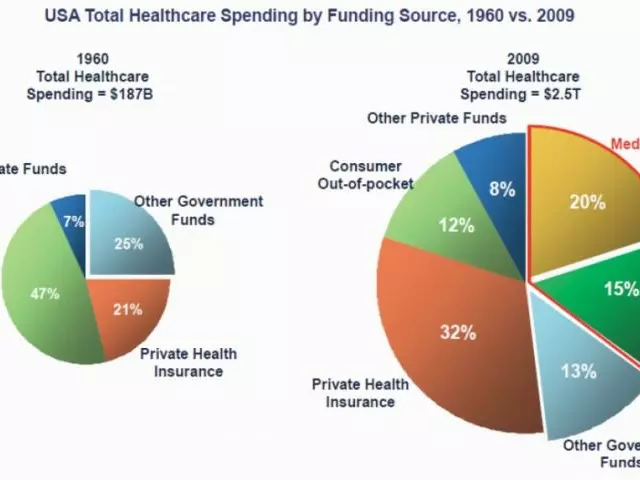Understanding Universal Health Care
Before we dive into the nitty-gritty of how the US can pay for universal health care, it is essential to understand what universal health care entails. At its core, universal health care means that every citizen in the country has equal access to quality health care services, regardless of their socio-economic status or geographical location. The principle here is to ensure that medical services are a basic human right and not a privilege exclusive to the wealthy.
The Current Cost of Health Care in the US
Right now, the US has one of the most expensive health care systems in the world, with an average per capita expenditure far exceeding that of other developed countries. In 2018, the US spent about $3.6 trillion on health care, which is about 18% of the country's GDP. These numbers are staggering, and they continue to rise. The question then becomes, why is health care so expensive in the US, and how can we make it more affordable?
How Other Countries Fund Universal Health Care
To answer these questions, it's useful to look at how other countries have successfully implemented and funded universal health care systems. Countries like Canada and the United Kingdom use a single-payer system, where the government pays for health care through taxes. In contrast, Germany and Japan use a multi-payer system, in which private health insurance companies and the government share the costs. These models can provide valuable insights for the US as it considers adopting universal health care.
Potential Funding Sources for Universal Health Care in the US
There are several potential funding sources for universal health care in the US. These include increasing income taxes, imposing new taxes on certain goods and services, and reallocating funds from other sectors. However, each of these options has its pros and cons and would require careful consideration and planning to implement effectively.
Increasing Efficiency in the Health Care System
Another significant aspect of funding universal health care involves reducing costs within the health care system itself. This can be achieved by increasing efficiency and reducing waste. For example, the US could save billions of dollars annually by streamlining administrative processes, reducing drug prices, and improving the coordination of care.
Role of Private Insurance in Universal Health Care
One question that often arises in discussions about universal health care is what role private insurance companies would play. Some proponents of universal health care argue that private insurance should be eliminated entirely, while others believe that it can coexist with a publicly funded system. This is a complex issue that would need to be addressed in any plan for universal health care in the US.
Political Challenges in Implementing Universal Health Care
Implementing universal health care in the US would require overcoming significant political challenges. There is a deep divide in the country over the role of government in health care, and any proposal for universal health care would likely face fierce opposition from various interest groups. However, with the right political will and public support, these challenges can be overcome.
Conclusion: The Path Forward for Universal Health Care in the US
As we've seen, funding universal health care in the US would be a complex and challenging endeavor. It would require not only finding new sources of funding but also making fundamental changes to the health care system itself. However, the benefits of universal health care – including improved health outcomes, reduced financial strain on families, and a more equitable society – make it a goal worth striving for. By learning from the experiences of other countries and engaging in thoughtful, informed debate, we can find a way forward towards universal health care in the US.
